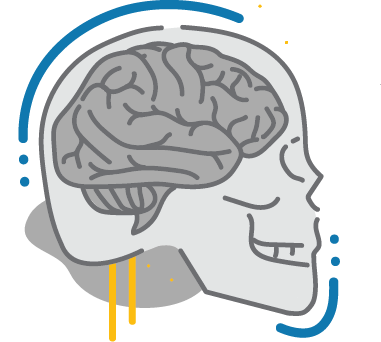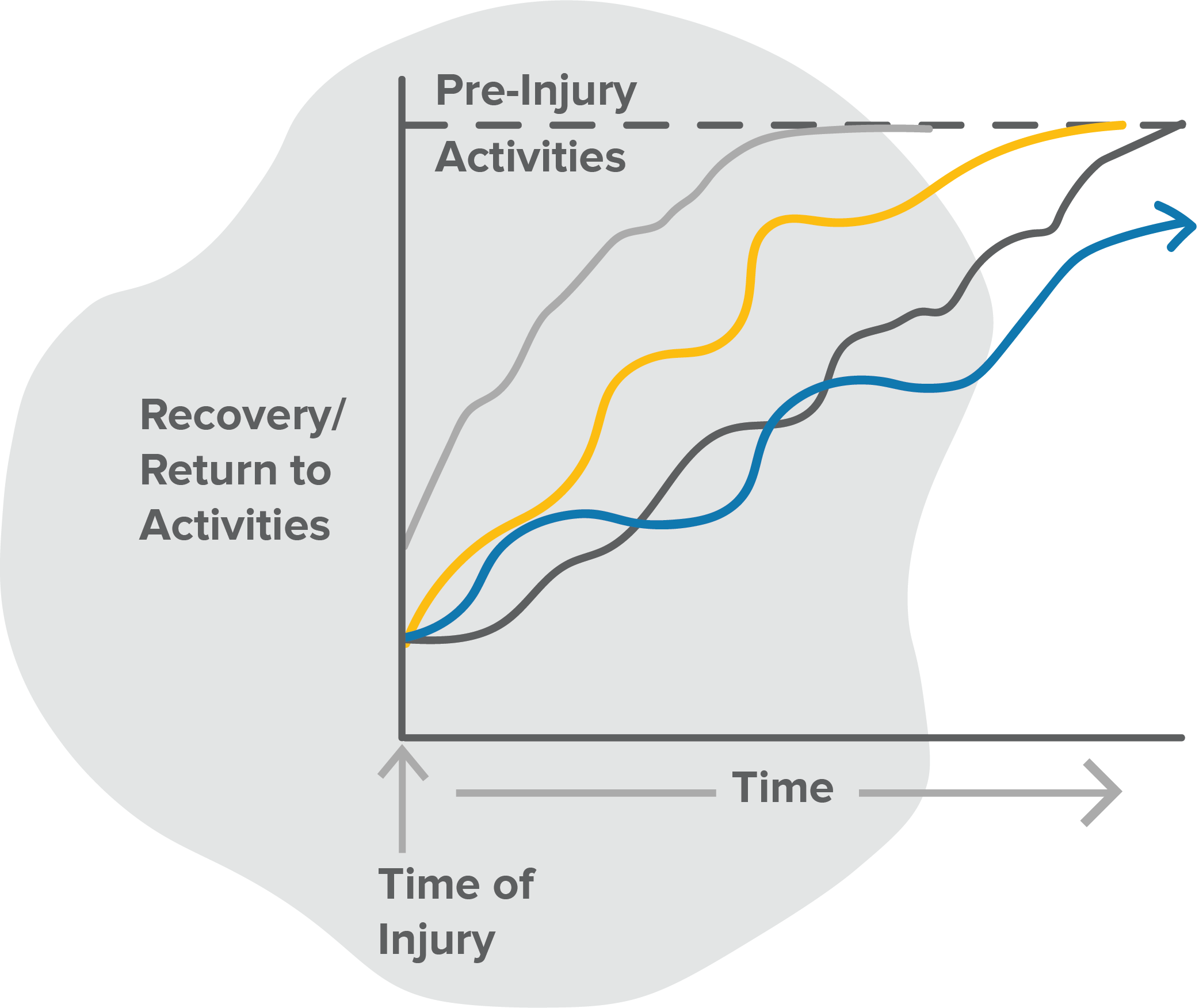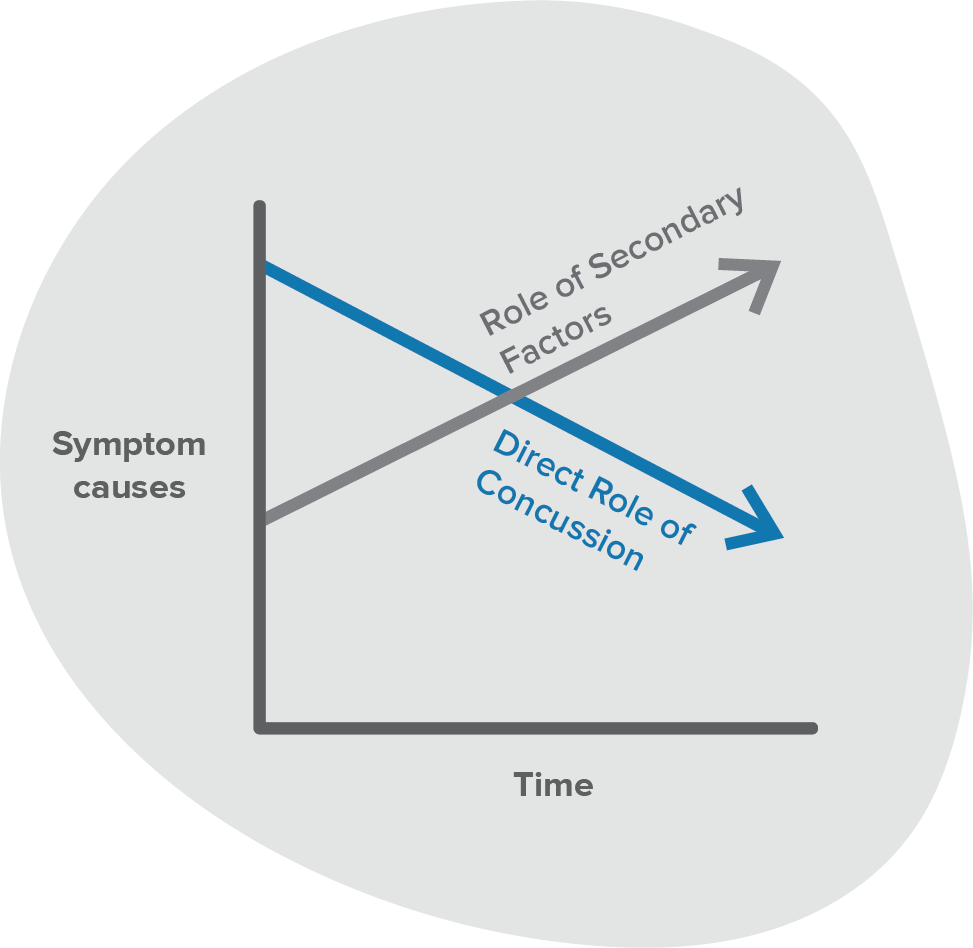Concussion Recovery Basics
Introduction (injured over a month ago)
Updated Aug 2, 2019
Updated Aug 2, 2019
Swipe right to go to the next slide
A concussion, or mild traumatic brain injury (mTBI), may be caused by a blow to the head or a jolt to the body, resulting in rapid movement of the brain inside the skull. Not every hard impact causes a concussion, but a concussion is suspected when the injury disrupts the brain’s functioning, at least temporarily.

This disruption may or may not include a brief loss of consciousness. Other signs may include confusion or disorientation (e.g., not sure where you are) after the impact or an inability to remember what happened right after the injury (amnesia). Temporary problems with how the brain cells are communicating with each other are thought to cause these behaviour changes.
Confusion or amnesia lasting longer than 24 hours, or a loss of consciousness longer than 30 minutes, may indicate a more severe traumatic brain injury, not concussion/mTBI. The information on this site is specific to concussion/mTBI and does not cover the management for a moderate or severe traumatic brain injury.
Not everyone who has a concussion will experience the same symptoms or pace of recovery. Most people return to their pre-injury functioning. A small group of people experience prolonged symptoms that may benefit from ongoing self-management. Your health care provider may ask you for more information to assess risk factors that can increase the chance of a slower recovery, but no one will be able to tell you exactly how long it will take.

It will be important to work with your health care providers to address your symptom management. Over time, different problems, such as sleep difficulties, stress, changes in mood, headaches, or pain can interact to keep each other going. Work with your family doctor to identify which symptoms areas may be best to focus on for treat. Treatments that worked for one person may not be the solution for someone else.

The next article in this introduction reviews common symptoms after a concussion.
Click the button above to toggle between light mode and dark mode. This toggle can also be found in the menu.
Hold
and tap
to zoom in.
Hold
and tap
to zoom out.
Hold
and tap
to zoom in.
Hold
and tap
to zoom out.
On most mobile devices, you can spread to zoom.
Increase your text size in your device settings.
Remember to take regular breaks while exploring MyGuide: Concussion.
Vancouver Coastal Health’s MyGuide Concussion Team would love to hear your feedback! It matters to us and helps to improve the experience for future users. Your responses will be kept anonymous and your privacy is a top priority. To complete a 15-20 minute online survey or request a telephone survey, please click the link below.